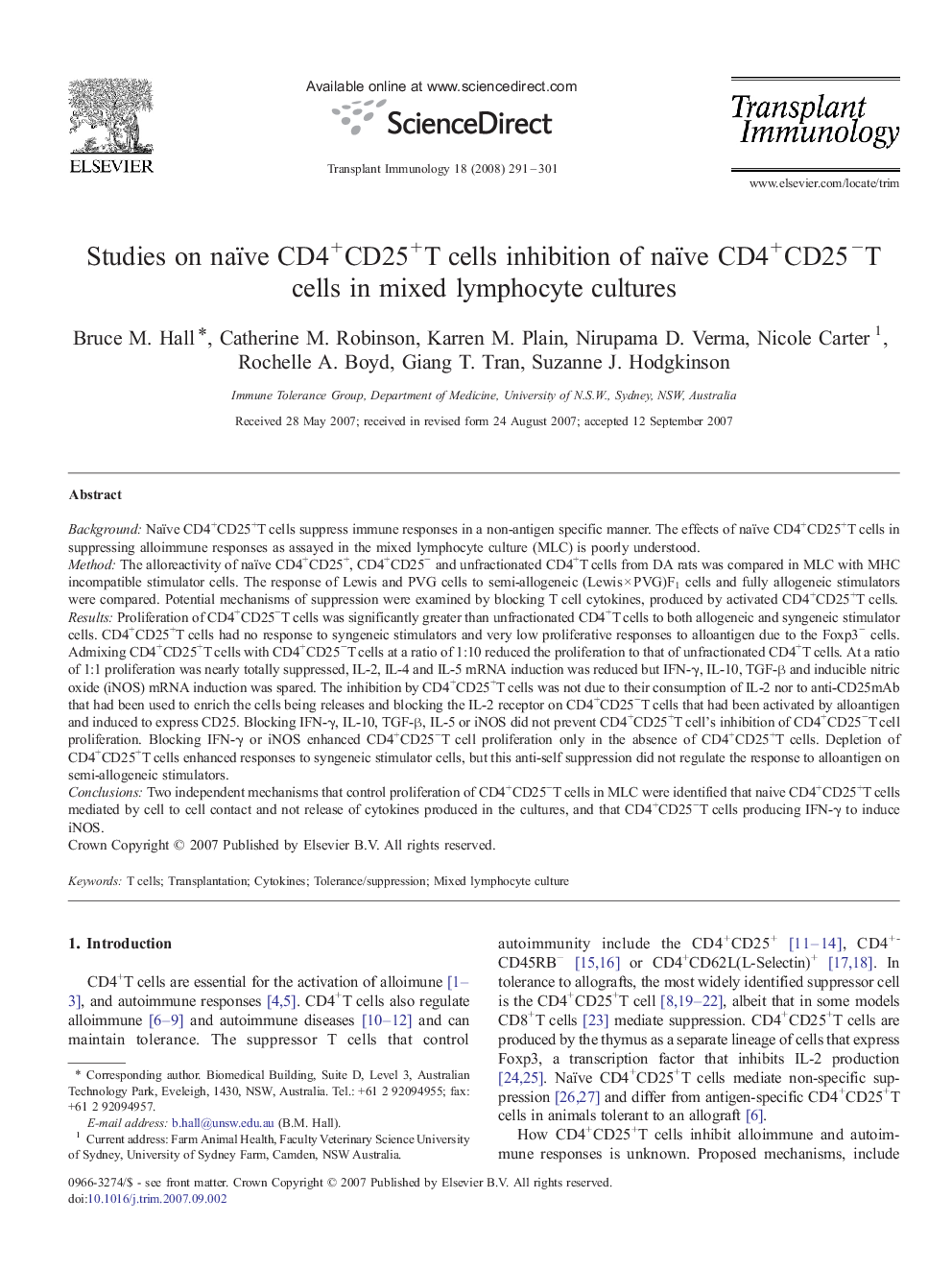| Article ID | Journal | Published Year | Pages | File Type |
|---|---|---|---|---|
| 3392614 | Transplant Immunology | 2008 | 11 Pages |
BackgroundNaïve CD4+CD25+T cells suppress immune responses in a non-antigen specific manner. The effects of naïve CD4+CD25+T cells in suppressing alloimmune responses as assayed in the mixed lymphocyte culture (MLC) is poorly understood.MethodThe alloreactivity of naïve CD4+CD25+, CD4+CD25− and unfractionated CD4+T cells from DA rats was compared in MLC with MHC incompatible stimulator cells. The response of Lewis and PVG cells to semi-allogeneic (Lewis × PVG)F1 cells and fully allogeneic stimulators were compared. Potential mechanisms of suppression were examined by blocking T cell cytokines, produced by activated CD4+CD25+T cells.ResultsProliferation of CD4+CD25−T cells was significantly greater than unfractionated CD4+T cells to both allogeneic and syngeneic stimulator cells. CD4+CD25+T cells had no response to syngeneic stimulators and very low proliferative responses to alloantigen due to the Foxp3− cells. Admixing CD4+CD25+T cells with CD4+CD25−T cells at a ratio of 1:10 reduced the proliferation to that of unfractionated CD4+T cells. At a ratio of 1:1 proliferation was nearly totally suppressed, IL-2, IL-4 and IL-5 mRNA induction was reduced but IFN-γ, IL-10, TGF-β and inducible nitric oxide (iNOS) mRNA induction was spared. The inhibition by CD4+CD25+T cells was not due to their consumption of IL-2 nor to anti-CD25mAb that had been used to enrich the cells being releases and blocking the IL-2 receptor on CD4+CD25−T cells that had been activated by alloantigen and induced to express CD25. Blocking IFN-γ, IL-10, TGF-β, IL-5 or iNOS did not prevent CD4+CD25+T cell's inhibition of CD4+CD25−T cell proliferation. Blocking IFN-γ or iNOS enhanced CD4+CD25−T cell proliferation only in the absence of CD4+CD25+T cells. Depletion of CD4+CD25+T cells enhanced responses to syngeneic stimulator cells, but this anti-self suppression did not regulate the response to alloantigen on semi-allogeneic stimulators.ConclusionsTwo independent mechanisms that control proliferation of CD4+CD25−T cells in MLC were identified that naive CD4+CD25+T cells mediated by cell to cell contact and not release of cytokines produced in the cultures, and that CD4+CD25−T cells producing IFN-γ to induce iNOS.
